It’s another Charles Chaplin short. So far I’ve enjoyed his shorts, but not to the extent that I quite get yet how he became the legend he is today.
When the movie started, Chaplin came onscreen and I was immediately shocked by how much better he looked. His hair was better, his acting less herky-jerky, he even seemed taller. He looked like he’d grown up in the six months span between this and the last film I’d seen him in. At last, I thought, I’m going to see what everyone else sees in Chaplin. And then Chaplin came onscreen. Surprise! I’d not been looking at Chaplin at all, but rather Lloyd Bacon, who would go on to have an outstanding career as a director, made up to resemble Chaplin. This isn’t the first time I’ve seen Bacon and Chaplin together— Bacon played a couple roles in The Tramp— but this is the first time I’ve seen him as Chaplin, and he ain’t half bad. He comes off as Chaplin’s older, better-looking brother.
Once the film gets underway, it’s more of the same. Chaplin wanders about in inexplicable fashion, constantly thwarted by mannequins, escalators, drinking fountains, and other mundane objects. He remains detached, and comes off as annoying rather than likable. The best I can say is that to audiences at the time his antics were no doubt fresh, but they play out as dated and uninspired to me. I’m still not writing him off, but his early comedies don’t hold up to a modern viewing the way other films of the era do. I think I mentioned in a previous podcast that comedies don’t seem to have matured as quickly as dramas, and that still seems to be the case here. However, this comedic short is head and shoulders above most of the others of its time.
The plot is quite simple. A department store’s manager and his assistant, a position that was known as a floorwalker in that era, have been embezzling money, and have so far stolen $70,000, which is about $2 million in today’s dollars. They learn that the store’s owners are sending detectives to investigate so they pull the money from the safe and plan to abscond with it. The floorwalker hits the manager over the head and tries to leave with all the money. He learns that the detectives are just outside his door, which is when Chaplin walks in. The two notice immediately how similarly they look, and perform a rudimentary version, and quite possibly the first on film, of the guy looking at an actor he believes is his reflection in a mirror gag. Once that’s done, the Floorwalker pretends to give Chaplin a job so they switch outfits. He sends Chaplin out dressed as him, and sneaks off in tramp garb with the bag of money.
Except, from that point on, nothing goes well for either of them. They fall down escalators, get kicked repeatedly in the butt (a gag that seemingly happens at least a dozen times in every Chaplin short), and keep losing the bag. Eventually, the detectives corral Chaplin in an elevator, just as it descends atop the floorwalker, who bursts through the floor of the elevator and is presumably arrested.
I watched this on a Blu-ray set that includes a dozen of the comedy shorts Chaplin made for Mutual in 1916 and 1917. You can purchase a copy by clicking on the photo below.
Next I’m watching Going Straight [1916], directed by Chester M. Franklin and Sidney Franklin.

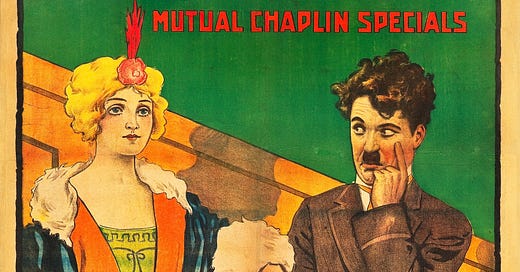



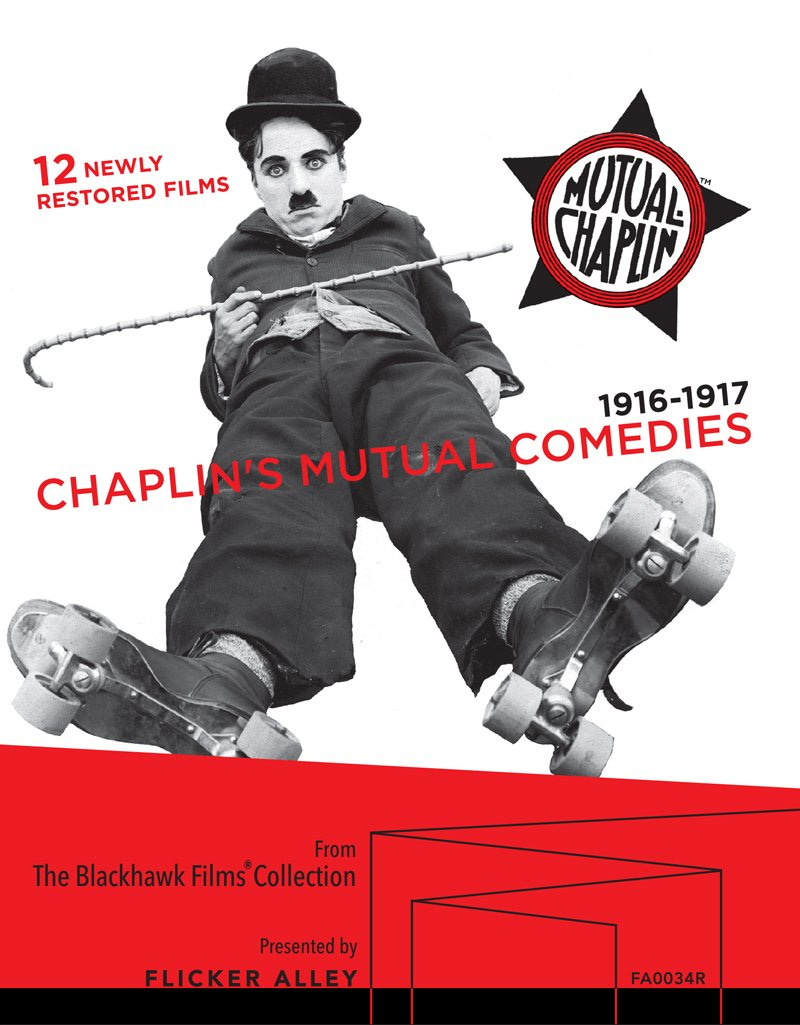

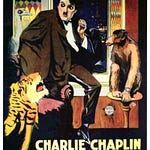
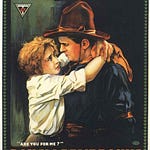
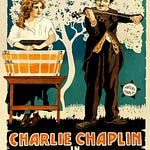

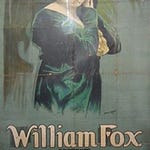
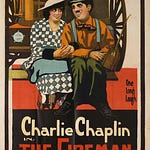

Share this post